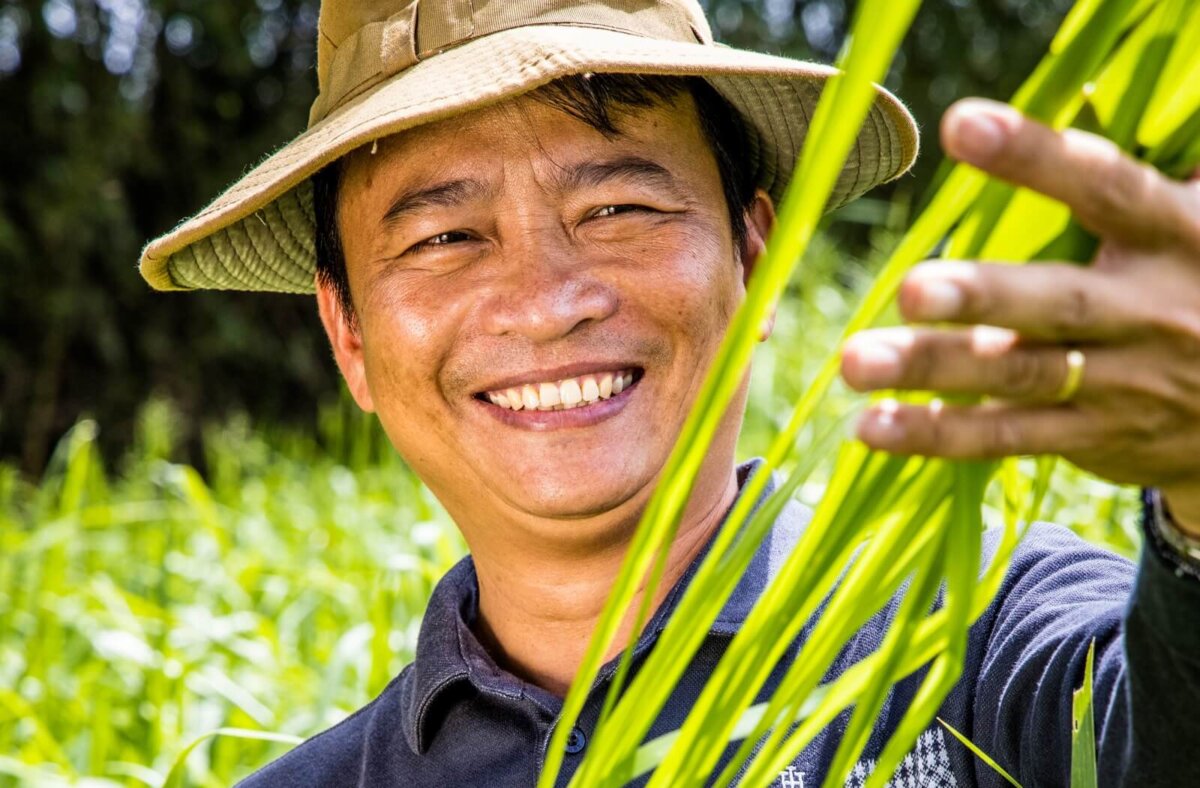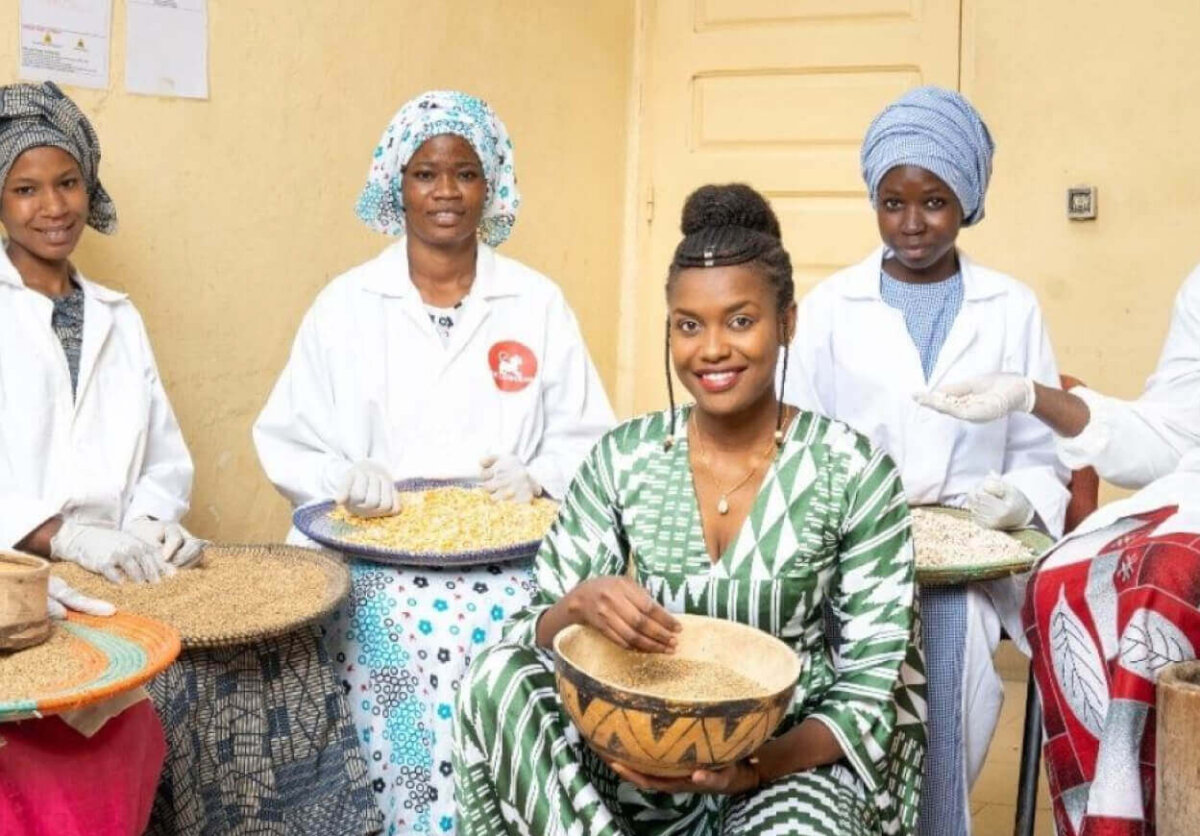- Projects
- Push your boundaries

That only retired men volunteer at PUM is an outdated fact. Of the experts active at PUM, 17 per cent are women and the ambition is to further expand the diversity in the expert pool in the coming years. One of those female experts is Marloes Luijerink – Hendriksen. She signed up as a volunteer and worked together with a fellow female farmer on location in Uganda.
Together with her husband Hans, Marloes runs the Ruhenberg family farm with 3,300 rosé calves in Overdinkel, Overijssel. Hans is in charge of day-to-day operations. Marloes is mainly concerned with management and staff supervision. She also gives practical lessons at schools and has a role in various social projects. Furthermore, she takes care of her mother-in-law who lives on the farm, and of course her five adolescents require attention as well. Marloes: “I have always said, if I ever have more time, I would very much like to broaden my horizon. Now, with the company’s growth, we decided to bring in extra staff, which means I could start as a volunteer for PUM.”

First advice on location
After going through some preparatory PUM workshops, Marloes was soon matched with a client. Farmer Conny from Uganda has a farm with 50 dairy cows and would like to take her business to the next level. “I had never been to Africa before, so this destination was way out of my comfort zone,” Marloes explains. “The first cultural differences became apparent not long after arrival. I was supposed to be picked up at 9:00 by someone from the farm. That ended up being 11.30 – Welcome to Uganda! We also did not leave for the farm immediately as planned, but stayed an extra day in the capital.”
The next day, the busy capital gave way to villages, the paved road became a bumpy dirt track and finally, after a 300-kilometre ride, they reached Conny’s farm. Marloes continues: “For this area in Uganda, Conny’s farm is really modern, with 50 cows and accompanying bulls and calves. Like me, Conny is just like me, someone who likes to do a lot of activities at the same time. She runs a tourism business during the week and on weekends she comes ‘home to her cows’!’ The ten staff members live, work and eat on and off the farm, together with their families. It was like a small community. It was very nice to walk around on the premises and being surprised by the processes on the farm. But also to see that some things are the same all over the world!”
Increasing milk production
Conny’s question was mainly about cattle feed and how to optimise it. Marloes explains: “There was a maize silage, but this is very labour-intensive and there was a high chance of rain filling the hole. We decided quite quickly to build a maize silo with bricks. Now that the first one is in place, they can replicate it themselves in the future for even more storage. There was also a big problem among the ranking of the cows during milking and feeding. The strongest ones were eating the tastiest maize. I advised them to mix the feed first before putting it in the troughs. And to pay close attention to the cows’ character. At the end of my stay on the farm, four different groups of cows were quietly eating in different places, which improved digestion and immediately turned up milk production. So nice to be able to see quick results with relatively simple changes! I assume she has taught the staff enough so that they don’t fall back into the old pattern in the future and they can also pass on the knowledge gained to people around them.” The client immediately put this into practice by inviting a group of young farmers from the area. There was open talk, discussion and motivation among the young farmers. At the end of the day, they all went home with a large bag of grass seed to sow at home.
Highly motivated
Marloes concludes that she did not have a ready-made solution for everything, and it turned out that she did not need that either. “The rainy season had started, and the maize could be planted. I saw how they worked the soil and spent a night thinking about a better solution. Only it turned out that they didn’t see their way of working as a problem, and then I realised that I should not make a problem out of it.”
All in all, it was a fantastic new experience for Marloes and she is highly motivated to advise many more fellow farmers worldwide. “I went there with a suitcase full of things they can use there, but came back with three suitcases full of spiritual baggage that I can use again here in the Netherlands in my daily life!”



